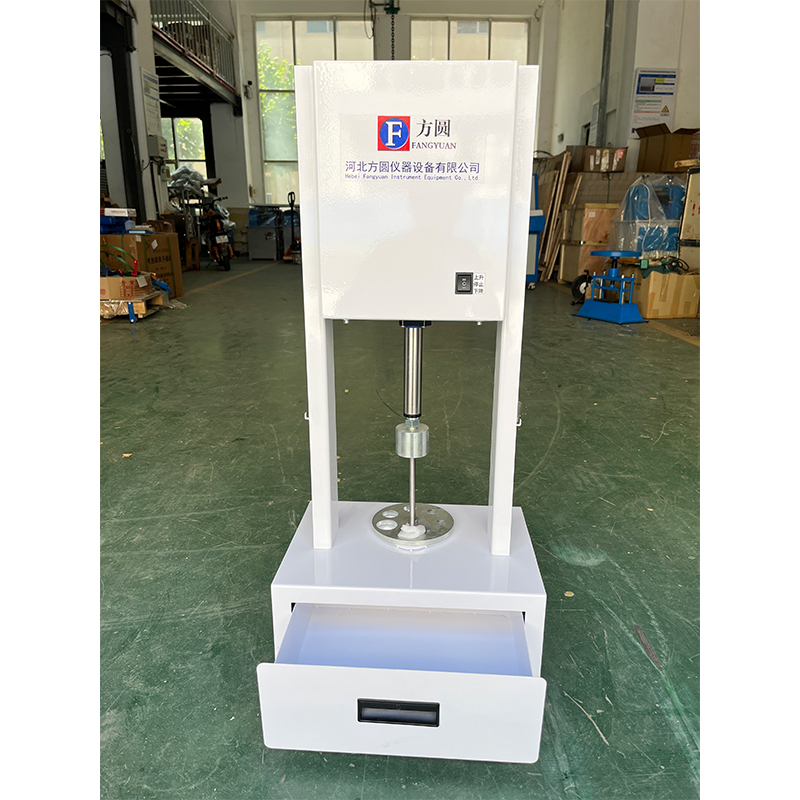Fabric Tensile Strength Testing Device for Reliable Material Performance Assessment
The Importance of Fabric Tensile Strength Testing
The textile industry plays a crucial role in our everyday lives, providing materials for clothing, upholstery, and various applications across different sectors. One of the most critical properties of fabrics is their tensile strength, which refers to the amount of force a fabric can withstand when being pulled or stretched before it breaks. To ensure that fabrics meet specific quality and safety standards, various testing methods are utilized, with the fabric tensile strength tester being one of the most vital instruments in this process.
Understanding Tensile Strength
Tensile strength is an essential characteristic that determines how well a fabric can resist deformation and damage under tension. It is particularly significant for applications where durability and reliability are paramount. For example, in the production of outdoor gear, upholstery, and technical textiles, fabrics are often subjected to rigorous stress. Ensuring that materials meet the required tensile strength specifications can prevent product failure, which can lead to significant safety hazards or financial losses.
The Fabric Tensile Strength Tester
A fabric tensile strength tester is an apparatus designed to measure the force required to break a fabric sample along with its elongation properties. This device typically consists of two clamps to hold the fabric, a measuring system that can track the applied force, and software that analyzes the data. The testing procedure usually involves the following steps
1. Sample Preparation Fabric samples are cut according to standardized dimensions to ensure consistency across tests. 2. Clamping The prepared fabric samples are securely clamped into the testing apparatus to prevent movement during the test.
3. Testing The machine applies a controlled tensile force to the fabric until it breaks. The maximum force exerted at the moment of rupture is recorded as the tensile strength of the fabric.
fabric tensile strength tester

4. Data Analysis The recorded force data is used to calculate additional parameters, such as elongation at break and modulus of elasticity, which provide further insights into the fabric's behavior under stress.
Standards and Specifications
To maintain quality and safety, various international standards exist regarding tensile strength testing. Organizations such as ASTM (American Society for Testing and Materials) and ISO (International Organization for Standardization) have developed guidelines that detail the methods for testing different types of materials. These standards help ensure that testing is conducted uniformly, allowing for accurate comparisons across different fabric types and manufacturers. Compliance with these standards is critical for manufacturers aiming to market their products effectively and for consumers who require reliable and durable textiles.
Applications in the Industry
The implications of tensile strength testing extend across various sectors within the textile industry. For manufacturers, understanding the tensile strength of their fabrics helps them make informed decisions about material choice and production techniques. Designers can utilize this data to create products that meet specific performance criteria, while quality assurance teams depend on tensile strength testing to verify that materials meet stringent safety and durability standards.
Moreover, tensile strength is not only crucial for traditional textiles but also for smart textiles and advanced composite materials used in medical, aerospace, and automotive applications. In these fields, the mechanical performance of fabrics can significantly impact the functionality and safety of the final product.
Conclusion
The fabric tensile strength tester serves as an indispensable tool in the textile industry, providing essential data that influences product design, manufacturing processes, and quality assurance. As the demand for high-performance textiles continues to grow, investing in effective testing methods and adhering to industry standards will remain vital. By ensuring that fabrics possess the requisite tensile strength, manufacturers can guarantee the safety, durability, and reliability of their products in an increasingly competitive marketplace. In a world where quality is paramount, the role of tensile strength testing will only become more critical, driving innovation and excellence in the textile industry.
-
The Role of Tensile Force Testers in Quality Control and Material Science
NewsAug.01,2025
-
Maintenance and Safety Tips for Aging Ovens
NewsAug.01,2025
-
Density Balance in Forensic Science
NewsAug.01,2025
-
Advanced Optical Measurement Technologies
NewsAug.01,2025
-
A Buyer’s Guide to Tensile Test Machines
NewsAug.01,2025
-
Why the Conductor Resistance Constant Temperature Measurement Machine Redefines Precision
NewsJun.20,2025
 Copyright © 2025 Hebei Fangyuan Instrument & Equipment Co.,Ltd. All Rights Reserved. Sitemap | Privacy Policy
Copyright © 2025 Hebei Fangyuan Instrument & Equipment Co.,Ltd. All Rights Reserved. Sitemap | Privacy Policy
